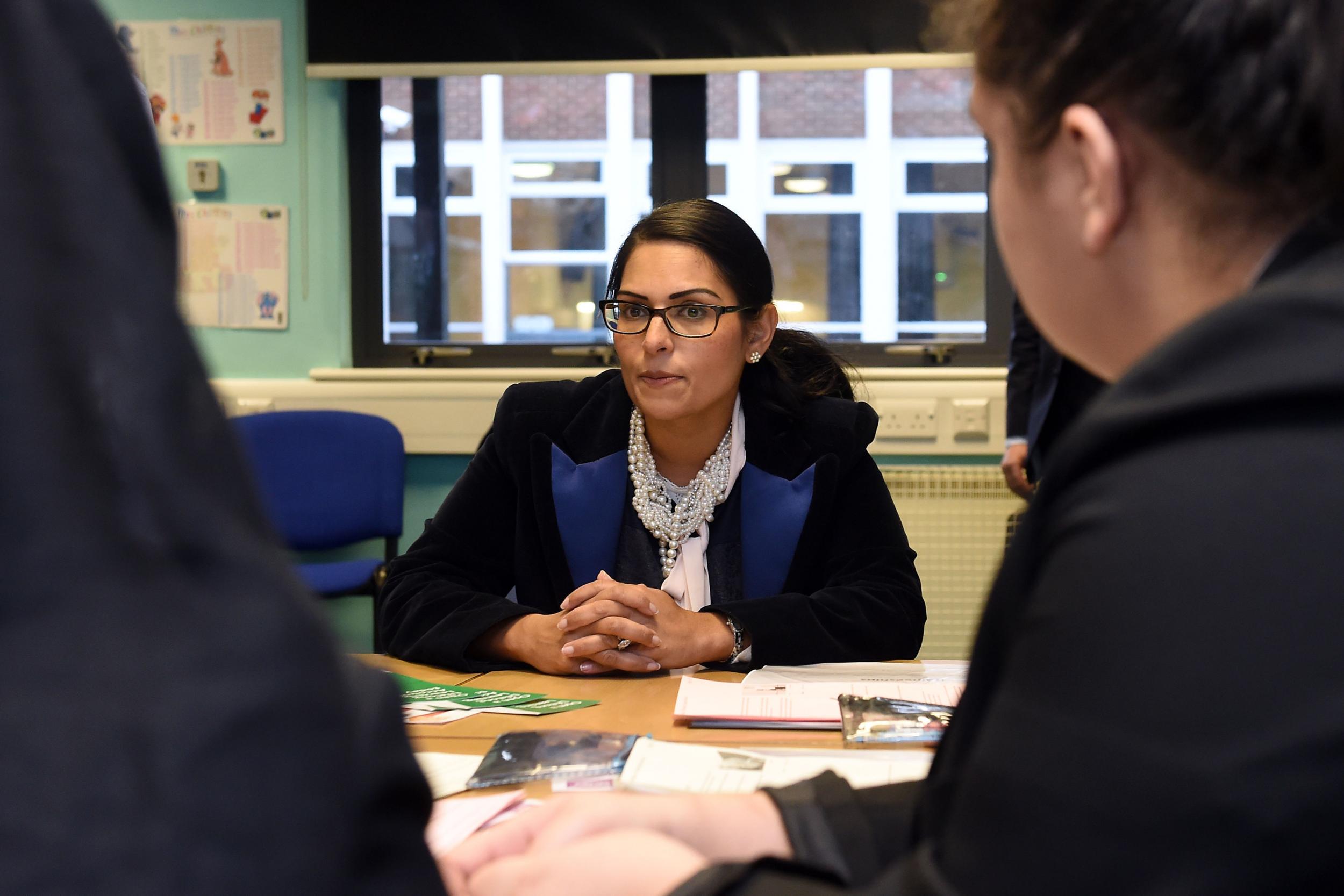Despite her job title, clearly International Development Secretary Priti Patel doesn’t quite understand how aid works
The International Development Secretary suggested that aid spending should not ‘exclude the whole areas of trade and trade opportunities’. However, free trade agreements are a disaster for most people in poorer countries

Does International Development Secretary Priti Patel go out of her way to make the UK look greedy and cruel? Her suggestion that we should use money allocated to fighting global poverty and inequality to secure post-Brexit trade deals is utterly wrong – particularly when these deals chiefly benefit big business. What next? With some MPs demanding a Royal Yacht to help win new trade deals, will she oblige by diverting some of the aid budget to buy one?
The warning signs were clear when Patel took charge of the Department for International Development (DFID). She had already said DFID should be axed to form a new Department for International Trade and Development. That never happened but there is effectively an informal merger with the new Department for International Trade, under Liam Fox, as they plan “joint missions” overseas to look for “economic opportunities” for British businesses.
Now, in Brexit Britain, Patel is breezing through Africa suggesting that the wheels of new corporate-led trade UK deals should be oiled with money from the aid budget.
This is plain wrong. For a rich country like the UK to see “aid” only in terms of how it can create economic opportunities, serve the “national interest”, and benefit “us” is shocking. But remember, it is not really “us”, as in you and me. These deals benefit multinational corporations and investors by stripping a country and its people of the power to protect its own industries and services.
Put simply, free trade agreements are bad for most people in the poorer countries. They harm producers by driving down prices of goods and removing protective tariffs. Regulations on environment, health and safety are often weakened or cut, meaning a race to the bottom for all. Moreover, privatisation is often at the core of these deals, meaning big businesses move in to run schools, water or health services at a profit. And the deals are rarely actually “free”. Rich countries inevitably maintain protection of their own exports, while the competitors in poor countries are forced to agree to open their markets.
The drive to produce at the lowest cost is paramount for those pushing these trade deals and is pushed at the expense of workers, land and water resources. Thus free trade agreements pull poor countries deeper into poverty. They should not be a focus for DFID.
Yes, DFID’s mission needs to be reviewed – aid is already being used to heavily promote the interests of multinational companies in Africa, rather than fighting poverty and inequality – but Patel’s multilateral aid review must ensure the aid budget is only used for genuine poverty reduction initiatives, such as support for small-scale farming, improving education or healthcare rather than boosting the profits of big business.

If Patel really wanted to help developing countries, she would also push for an immediate abolition of the UK’s own global network of tax havens, which fuel tax evasion, corruption and money laundering. It is estimated that the world’s governments lose an astonishing $3 trillion of revenue every year in tax evasion and tax avoidance schemes; money vital for tackling inequality and funding public services. The UK should also be pushing hard for comprehensive public country-by-country reporting that compels companies to publish key information about where they are doing business, earning their profits and paying their taxes.
Unless this move to divert aid money toward toxic trade deals is halted, and action taken on tax dodging, it is hard to take seriously this Government's commitment to tackling global poverty.
Vicki Hird is campaigns and policy director at War on Want
Join our commenting forum
Join thought-provoking conversations, follow other Independent readers and see their replies
Comments
Bookmark popover
Removed from bookmarks